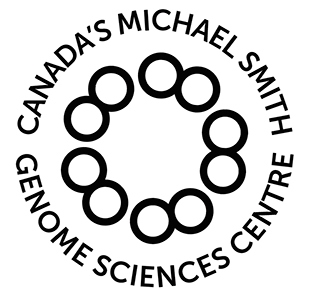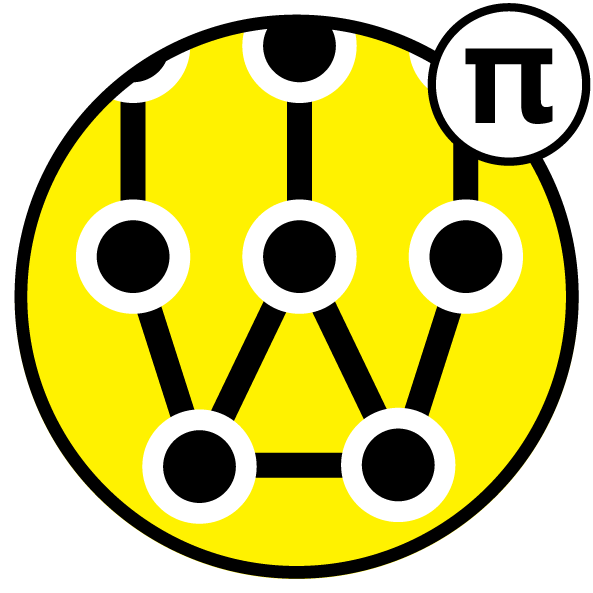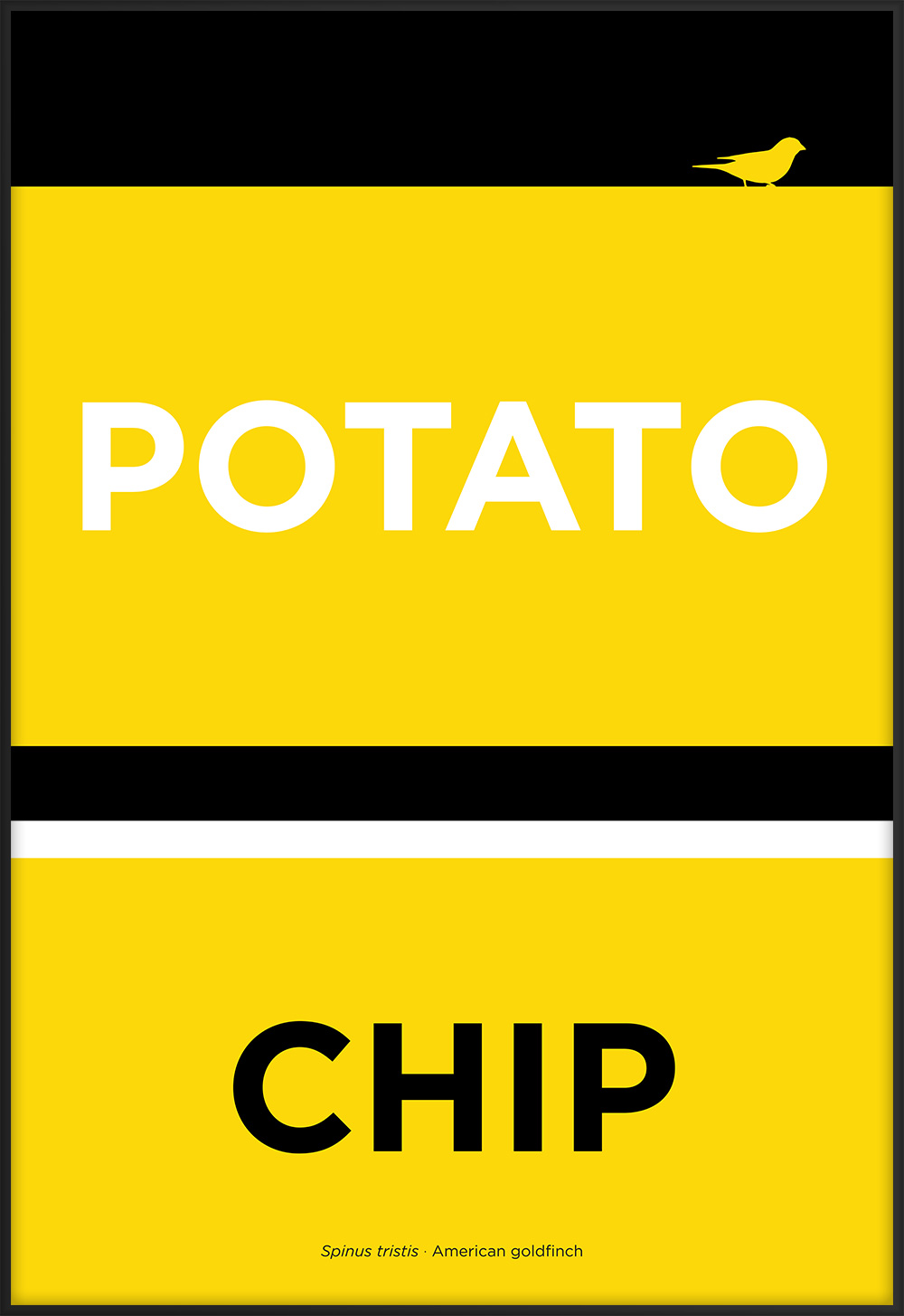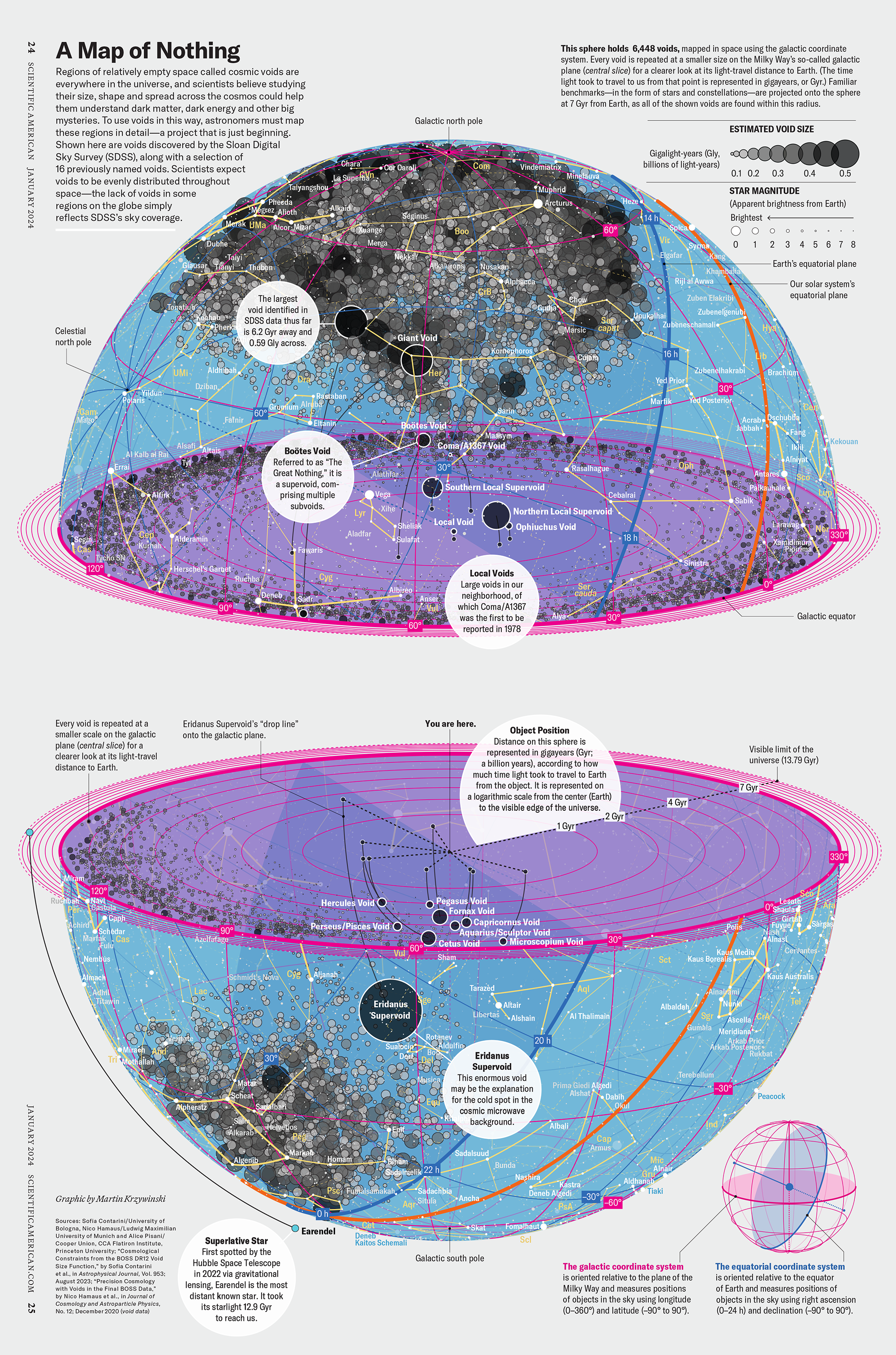Visions of Type
 buy artwork
buy artwork
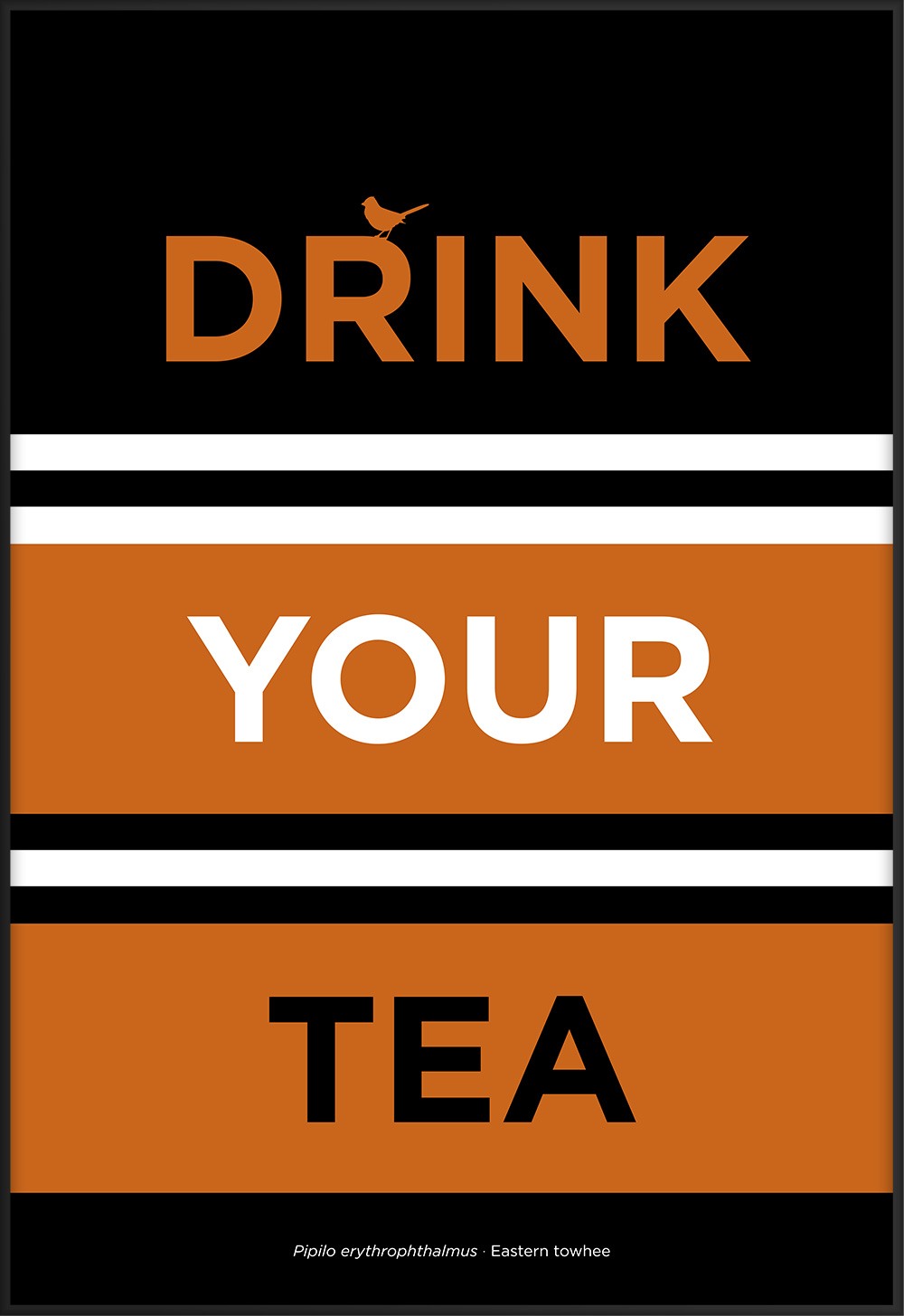
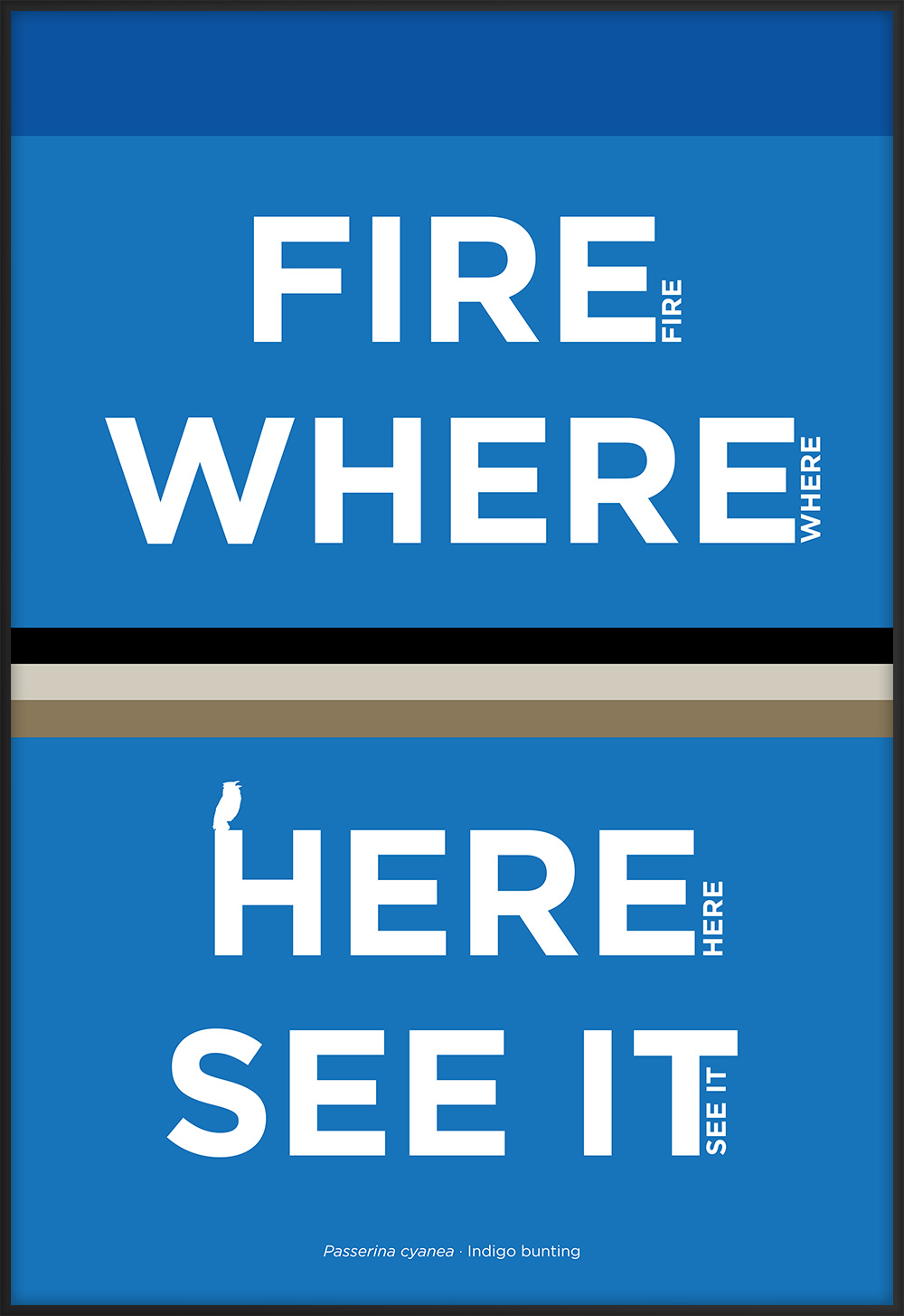

contents
If you live in a city, birds are essentially the only wildlife that you meet during your day.
Depending on where you live, you might come several species without even trying. In Vancouver, on a 10 minute walk around my house, I have a good chance to see rock doves (pigeons), crows, mallars, wigeons, hooded mergansers (if I'm lucky), common starlings, house sparrows (sigh), house finches, song sparrows, red-winged black birds, white-crowned sparrows, bushtits, black-capped chickadees, northern flickers, great blue herons, and the mother-of-all-honkers: Canada geese.
Birds and letters are everywhere—art of nature and man.
Letter forms, on the other hand, are the art that is also everywhere. Every typeface is an artistic expression.
Regardless where you live, sadly, you are likely to come across mutants like Comic Sans, Arial and Times New Roman — odious creatures from the shallows. Try to find Gotham, Gill Sans, Frutiger, or Garamond.
Bird songs can be visualized with a spectrogram — a visualization of the frequency components (vertical axis) in the call as a function of time (horizontal axis).
For example, below is a crop of a recording of the American goldfinch, who eats a potato chip in about 0.5 seconds. And when in flight, he has it with dip.

The full recording from the Cornell Lab Macaulay Library is shown below.
Spectrograms give us detailed insight into the fine structure of a vocalization. For example, the black-capped chicadee's “fee-bee” (or cheeseburger) actually has a very short pause (about 50 ms) in the “bee”, making it more of a “be-e”. Below is a recording of this call.
One of my favourite bird sounds is the “sawing machine” of the marsh wren. They often hide in tall reeds around ponds and lakes, making them hard to spot — by eye, but not by ear!
Mnemonics of bird songs help you remember the call and recognize the bird. It's so much easier to think "Quick, three beers!" — the call of the Olive-sided flycatcher — rather than "Chirp, chirp, chirp."
The mnemonic captures the cadence and repetition scheme of the song. For example, if you listen to the white-throated sparrow you can't help but think that this little guy is trying to tell us something.
French Zonotrichia albicollis: Baisse ta jupe, Philomène, Philomène, Philomène. How differently we hear!
—Madelaine Lemieux (via Twitter)
Potato chip!
American Goldfinch (Spinus tristis)
Here here. Come right here, dear.
Baltimore Oriole (Icterus galbula)
Who cooks for you?
Barred Owl (Strix varia)
Here sweetie.
Black-capped Chickadee (Poecile atricapillus)
Trees, trees, murmuring trees.
Black-throated Green Warbler (Setophaga virens)
Drink your tea.
Eastern Towhee (Pipilo erythrophthalmus)
Are you awake? Me too.
Great Horned Owl (Bubo virginianus)
Qu'est-ce qu-il dit?
Great Kiskadee (Pitangus sulphuratus)
Fire fire. Where where? Here here! See it, see it.
Indigo Bunting (Passerina cyanea)
Clear. Wick, wick, wick.
Northern Flicker (Colaptes auratus)
Quick, three beers!
Olive-sided Flycatcher (Contopus cooperi)
Where are you? Here I am.
Red-eyed Vireo (Vireo olivaceus)
Chubby chubby cheeks. Chubby cheeks.
Ruby-crowned Kinglet (Regulus calendula)
See me, pretty, pretty me.
White-crowned Sparrow (Zonotrichia leucophrys)
Dear sweet Canada Canada Canada.
White-throated Sparrow (Zonotrichia albicollis)
If you love birds and typography, these posters are for you. The mnemonic for the bird's song is presented on a background that proportionally presents the bird's plumage colors.
Some posters create natural sets.
 buy artwork
buy artwork
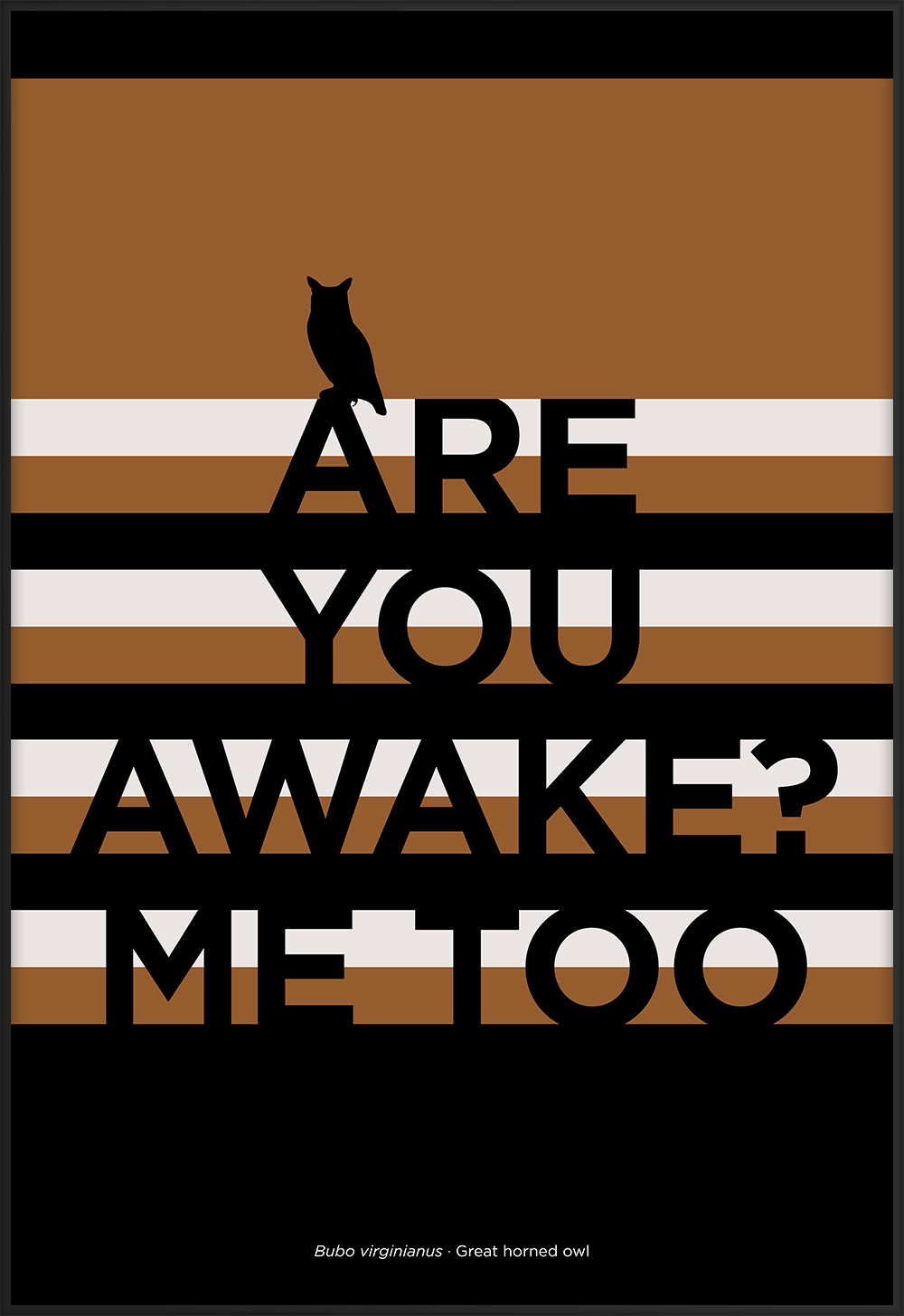

 buy artwork
buy artwork
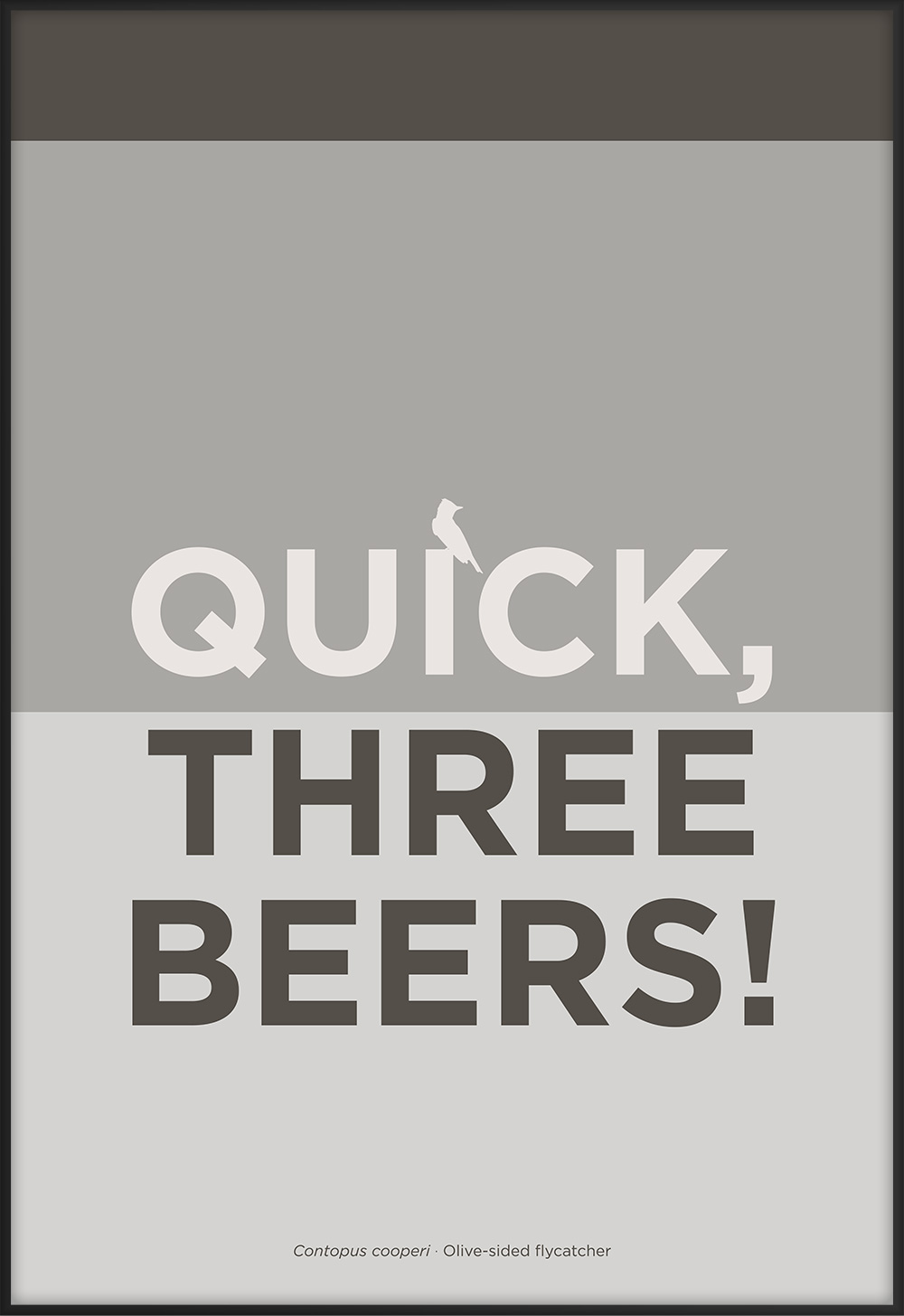

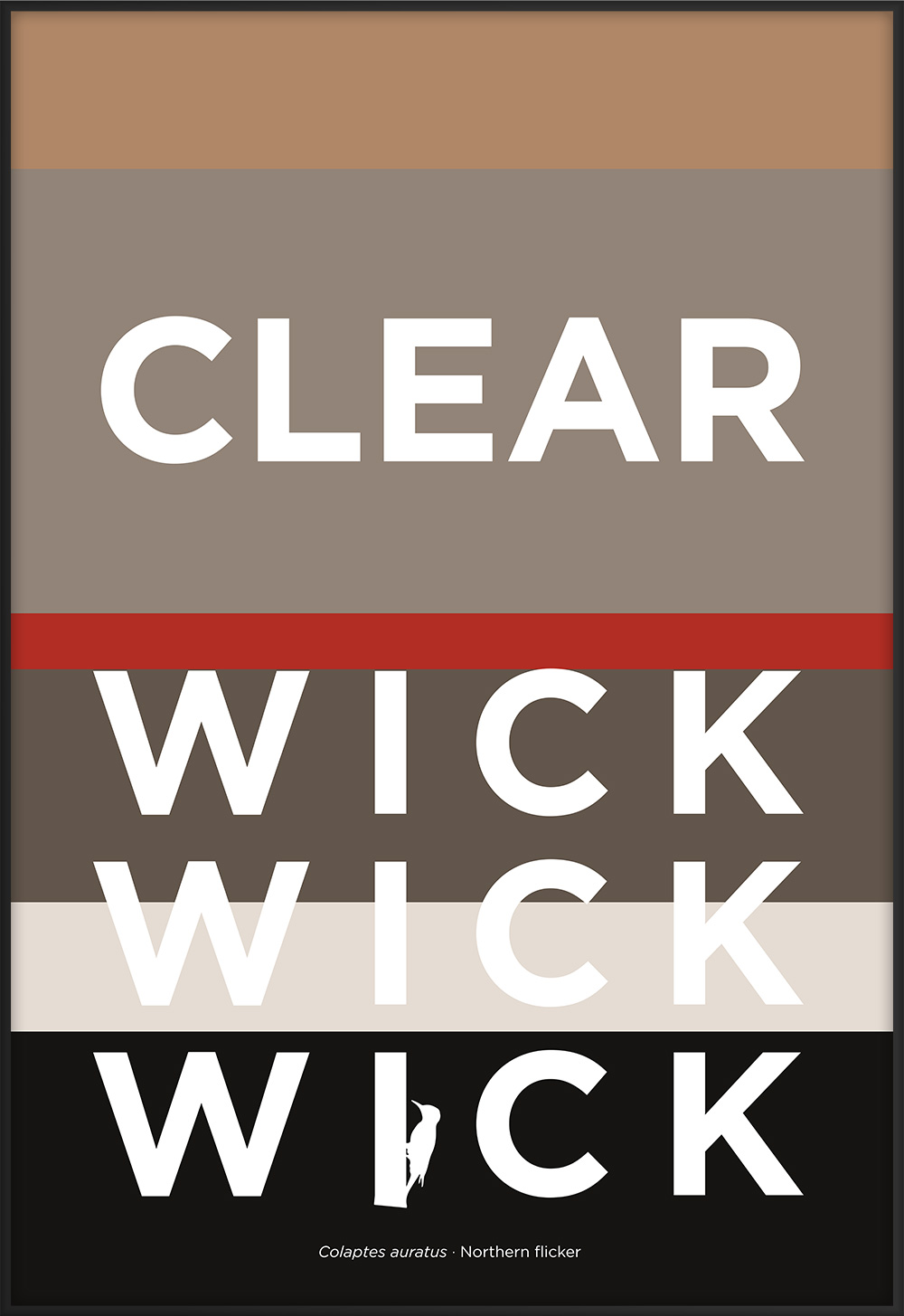
And if you explore the posters, you just might find the bird too.
 buy artwork
buy artwork
 buy artwork
buy artwork
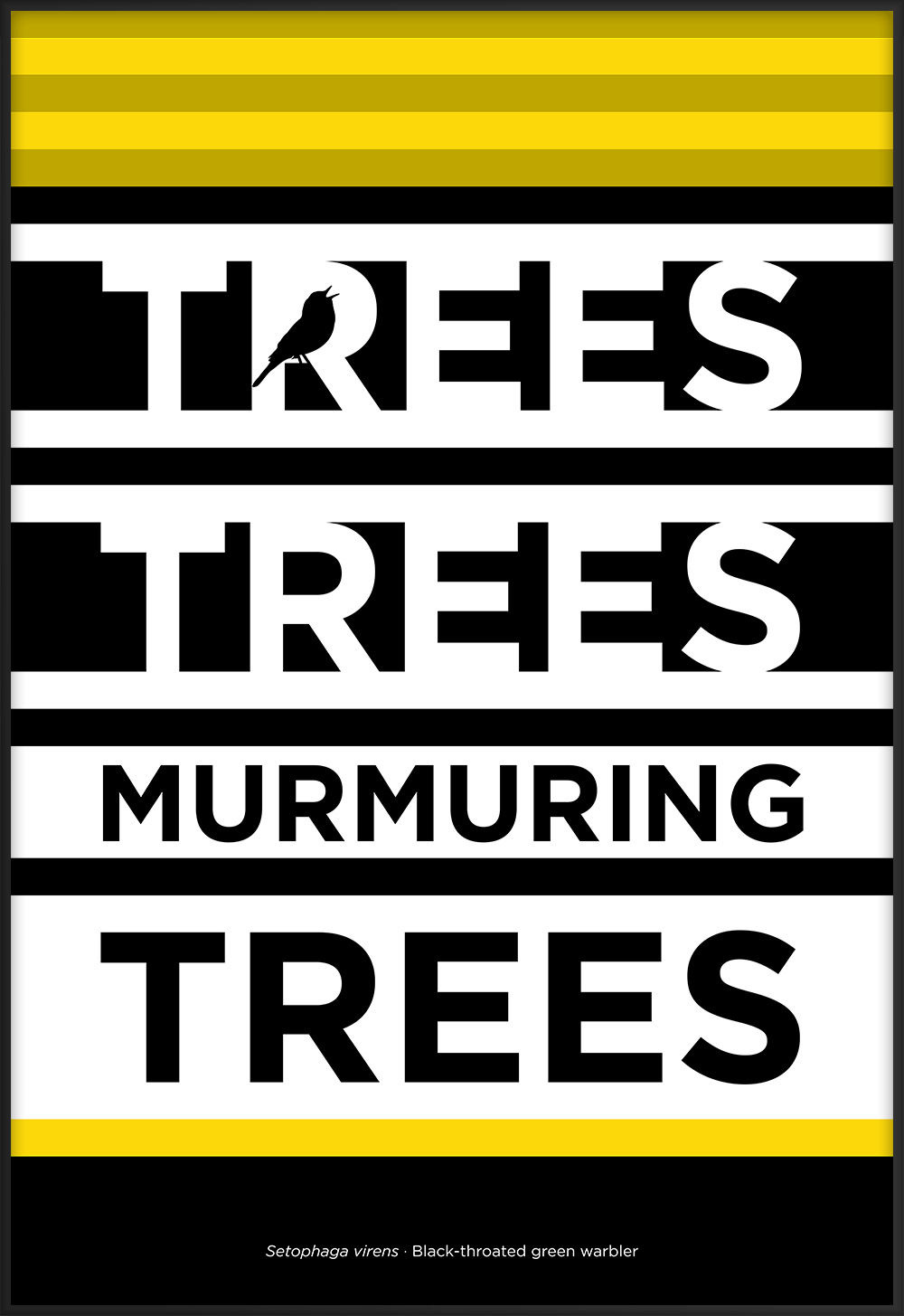 buy artwork
buy artwork
 buy artwork
buy artwork
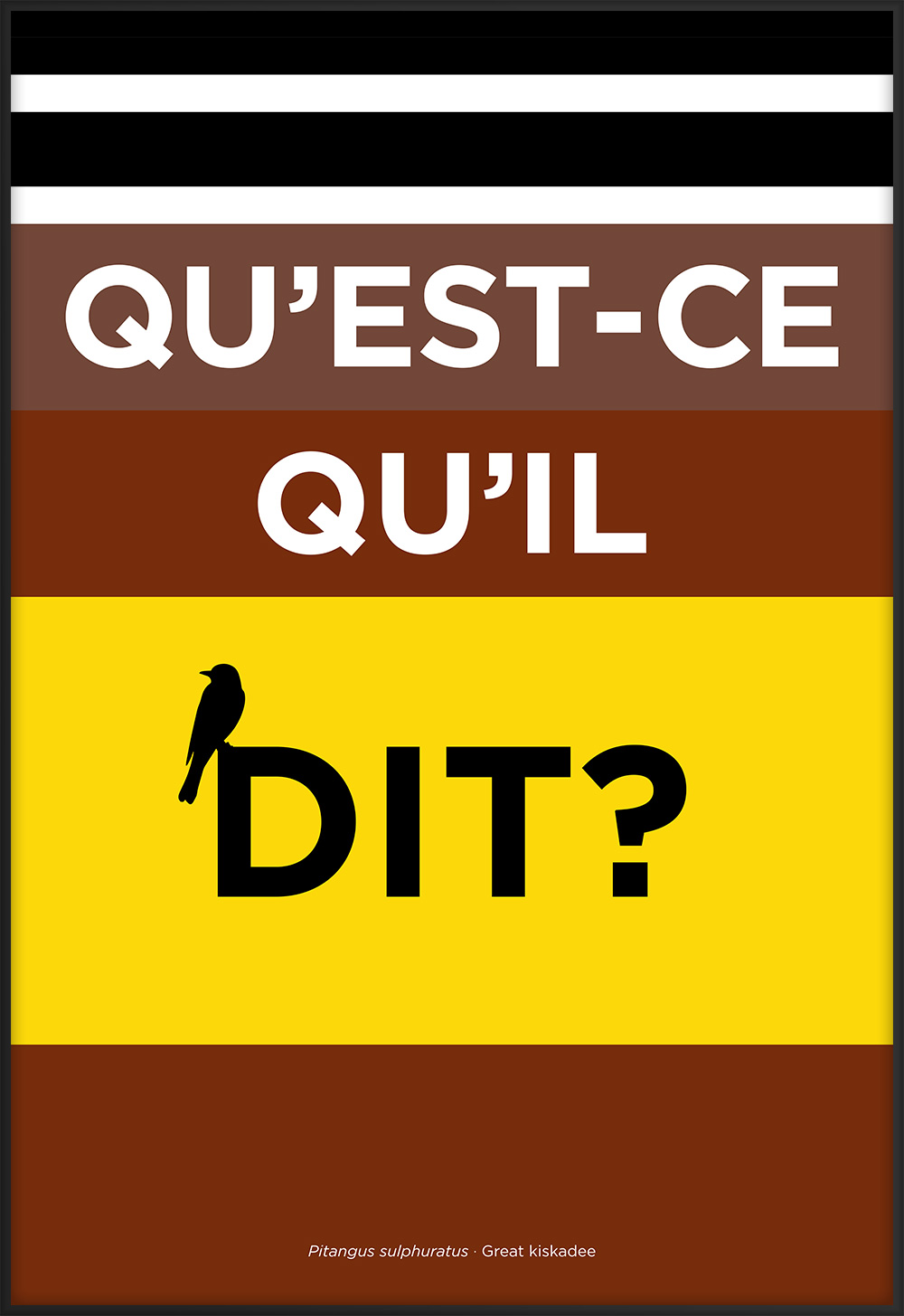 buy artwork
buy artwork
 buy artwork
buy artwork
 buy artwork
buy artwork
 buy artwork
buy artwork
 buy artwork
buy artwork
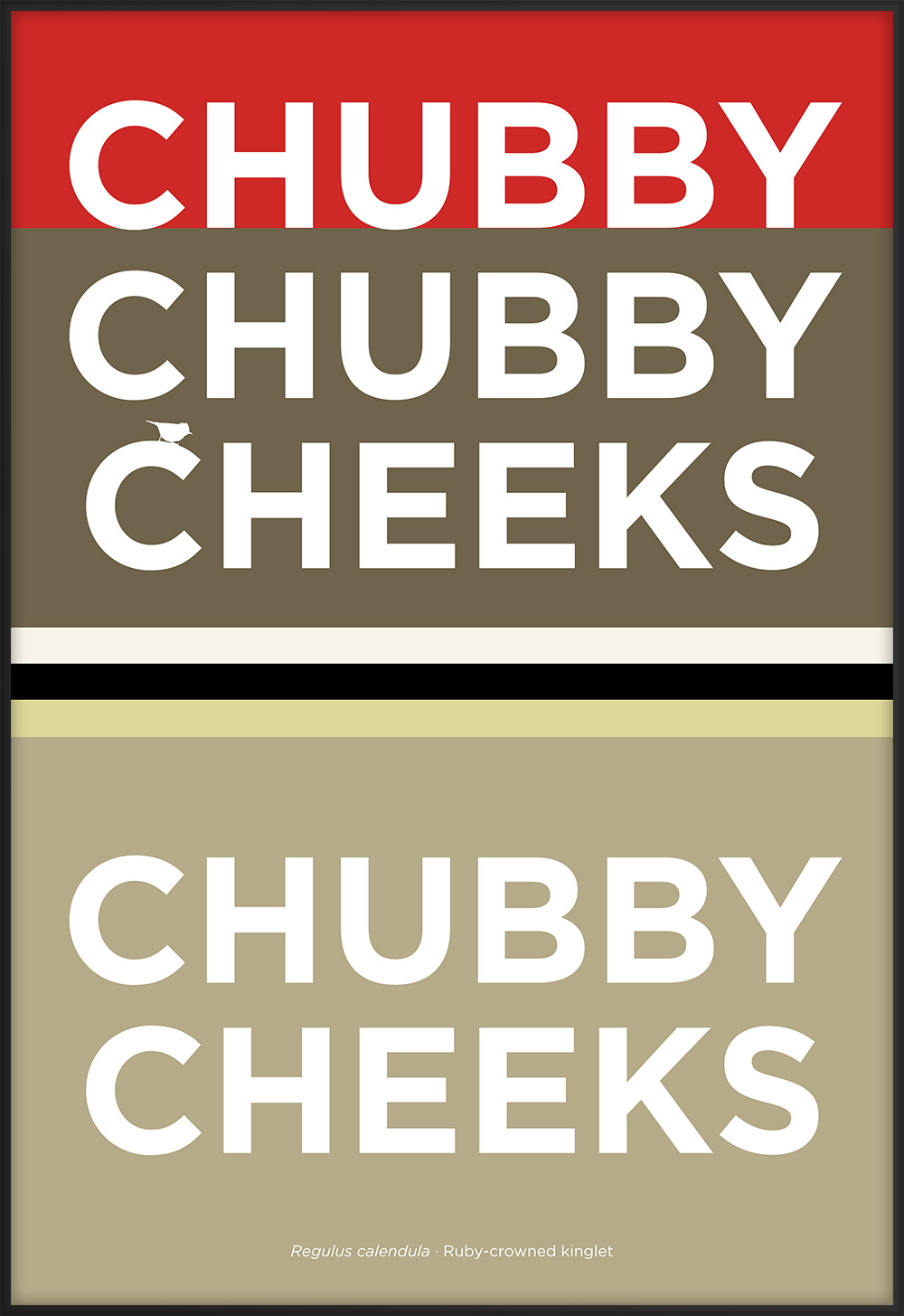 buy artwork
buy artwork
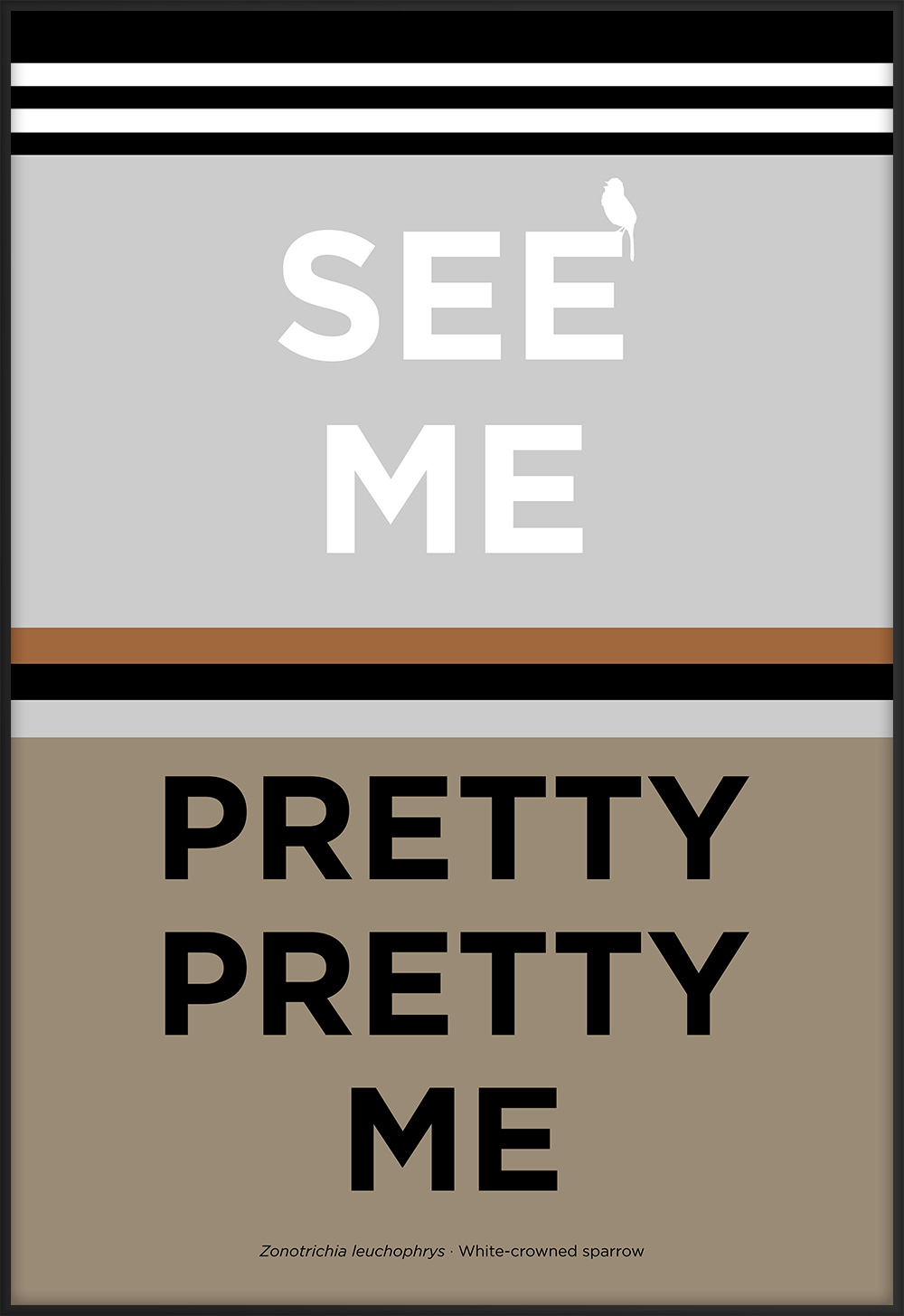 buy artwork
buy artwork
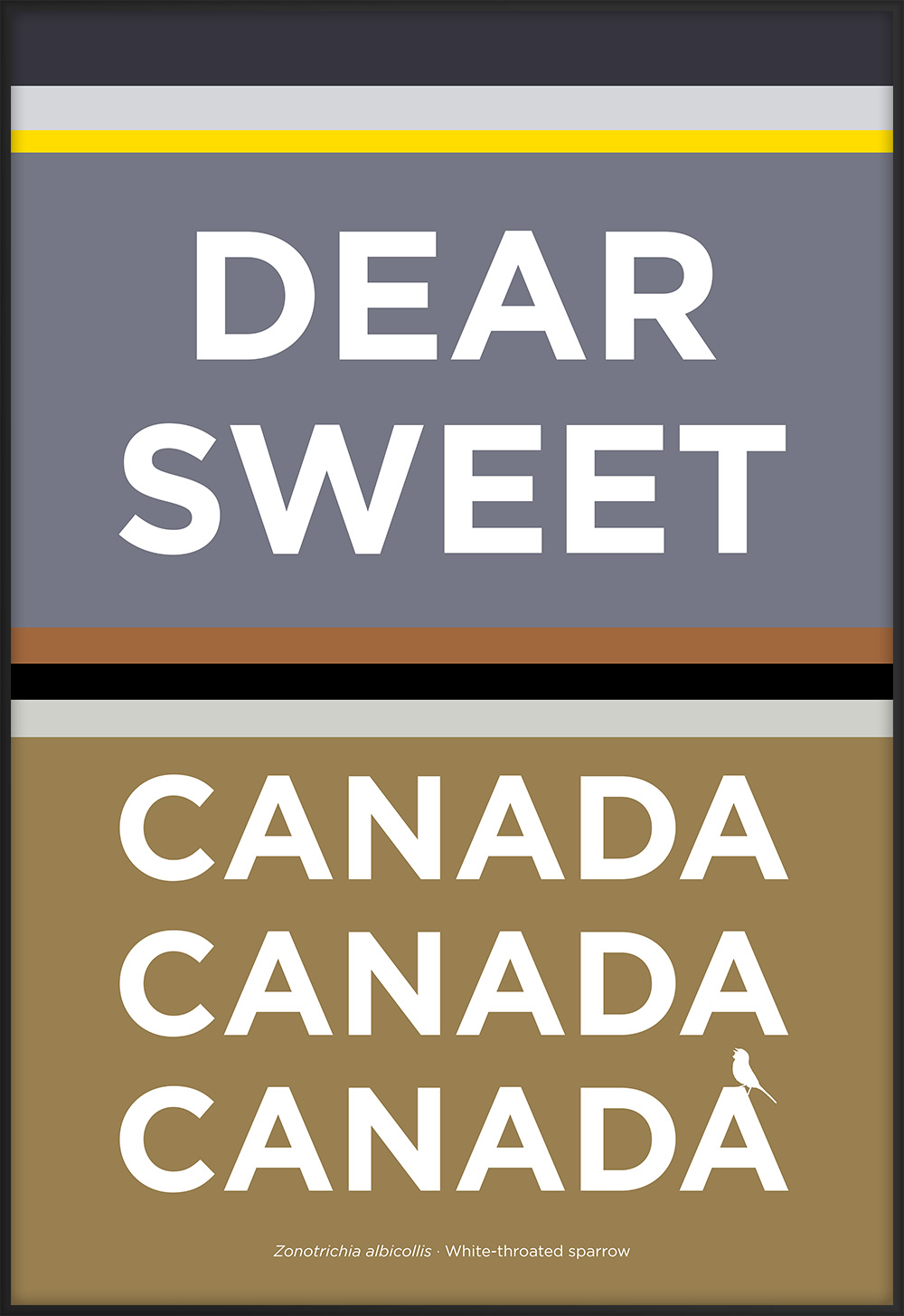 buy artwork
buy artwork
Nasa to send our human genome discs to the Moon
We'd like to say a ‘cosmic hello’: mathematics, culture, palaeontology, art and science, and ... human genomes.
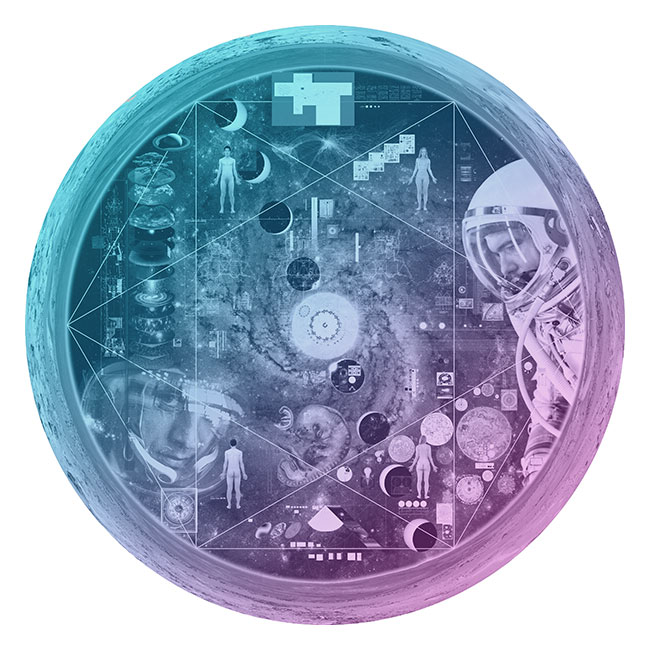


Comparing classifier performance with baselines
All animals are equal, but some animals are more equal than others. —George Orwell
This month, we will illustrate the importance of establishing a baseline performance level.
Baselines are typically generated independently for each dataset using very simple models. Their role is to set the minimum level of acceptable performance and help with comparing relative improvements in performance of other models.
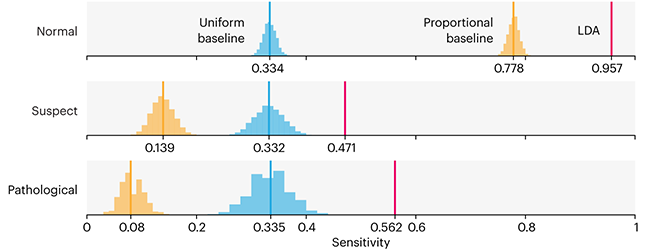
Unfortunately, baselines are often overlooked and, in the presence of a class imbalance5, must be established with care.
Megahed, F.M, Chen, Y-J., Jones-Farmer, A., Rigdon, S.E., Krzywinski, M. & Altman, N. (2024) Points of significance: Comparing classifier performance with baselines. Nat. Methods 20.
Happy 2024 π Day—
sunflowers ho!
Celebrate π Day (March 14th) and dig into the digit garden. Let's grow something.
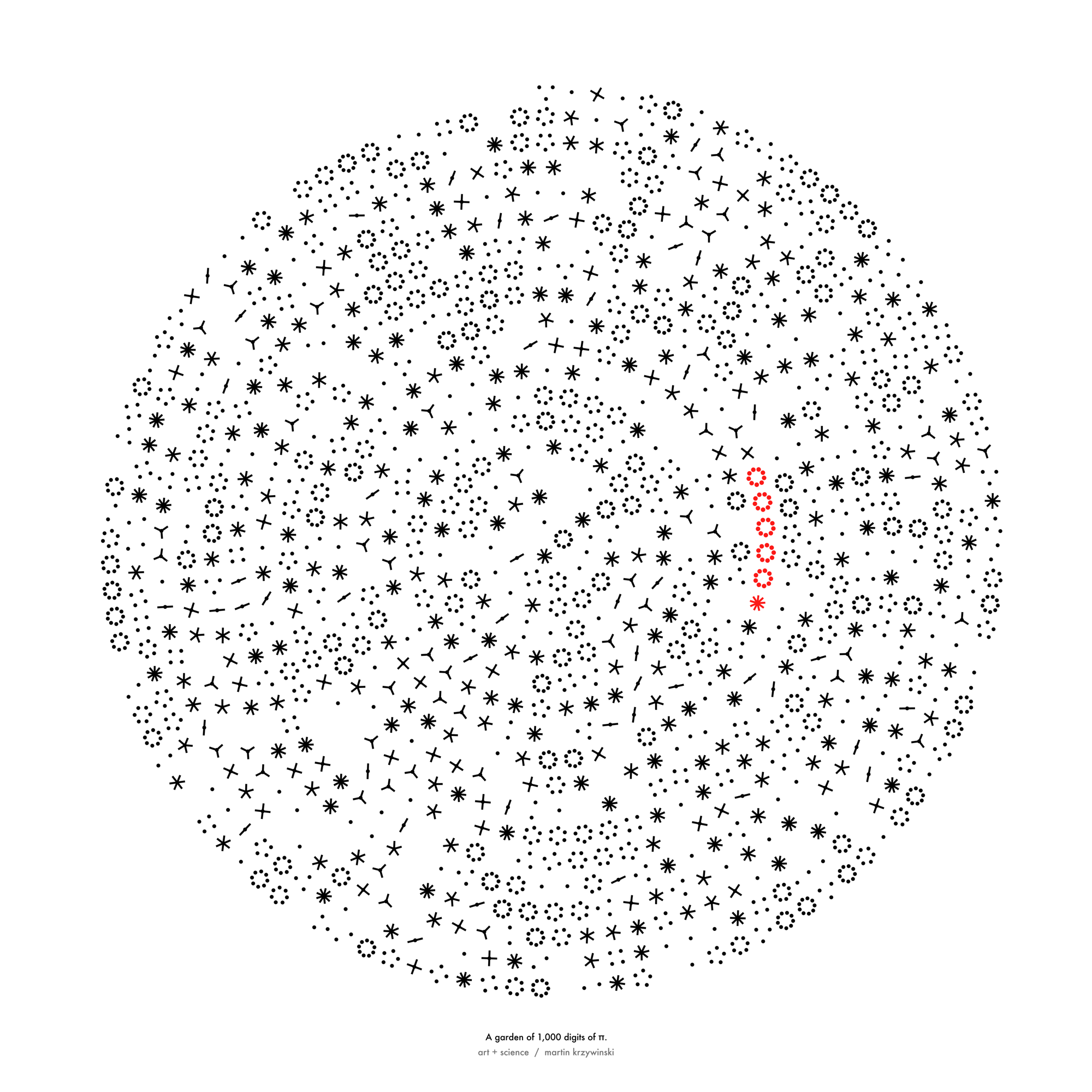
How Analyzing Cosmic Nothing Might Explain Everything
Huge empty areas of the universe called voids could help solve the greatest mysteries in the cosmos.
My graphic accompanying How Analyzing Cosmic Nothing Might Explain Everything in the January 2024 issue of Scientific American depicts the entire Universe in a two-page spread — full of nothing.
The graphic uses the latest data from SDSS 12 and is an update to my Superclusters and Voids poster.
Michael Lemonick (editor) explains on the graphic:
“Regions of relatively empty space called cosmic voids are everywhere in the universe, and scientists believe studying their size, shape and spread across the cosmos could help them understand dark matter, dark energy and other big mysteries.
To use voids in this way, astronomers must map these regions in detail—a project that is just beginning.
Shown here are voids discovered by the Sloan Digital Sky Survey (SDSS), along with a selection of 16 previously named voids. Scientists expect voids to be evenly distributed throughout space—the lack of voids in some regions on the globe simply reflects SDSS’s sky coverage.”
voids
Sofia Contarini, Alice Pisani, Nico Hamaus, Federico Marulli Lauro Moscardini & Marco Baldi (2023) Cosmological Constraints from the BOSS DR12 Void Size Function Astrophysical Journal 953:46.
Nico Hamaus, Alice Pisani, Jin-Ah Choi, Guilhem Lavaux, Benjamin D. Wandelt & Jochen Weller (2020) Journal of Cosmology and Astroparticle Physics 2020:023.
Sloan Digital Sky Survey Data Release 12
Alan MacRobert (Sky & Telescope), Paulina Rowicka/Martin Krzywinski (revisions & Microscopium)
Hoffleit & Warren Jr. (1991) The Bright Star Catalog, 5th Revised Edition (Preliminary Version).
H0 = 67.4 km/(Mpc·s), Ωm = 0.315, Ωv = 0.685. Planck collaboration Planck 2018 results. VI. Cosmological parameters (2018).
constellation figures
stars
cosmology
Error in predictor variables
It is the mark of an educated mind to rest satisfied with the degree of precision that the nature of the subject admits and not to seek exactness where only an approximation is possible. —Aristotle
In regression, the predictors are (typically) assumed to have known values that are measured without error.
Practically, however, predictors are often measured with error. This has a profound (but predictable) effect on the estimates of relationships among variables – the so-called “error in variables” problem.
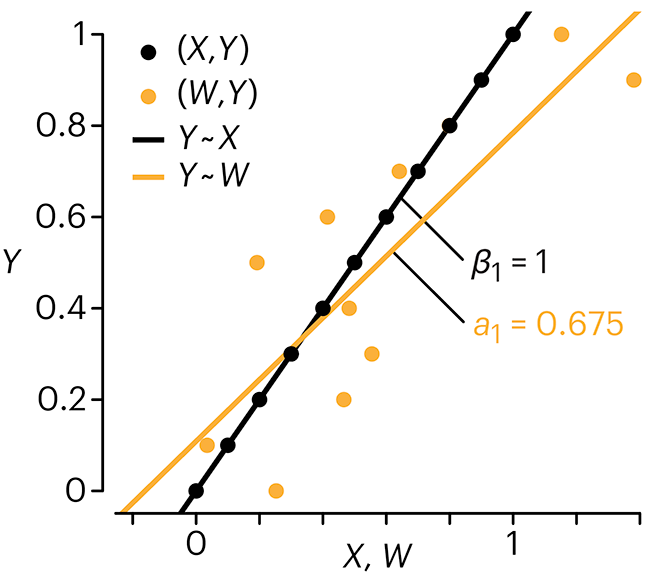
Error in measuring the predictors is often ignored. In this column, we discuss when ignoring this error is harmless and when it can lead to large bias that can leads us to miss important effects.
Altman, N. & Krzywinski, M. (2024) Points of significance: Error in predictor variables. Nat. Methods 20.
Background reading
Altman, N. & Krzywinski, M. (2015) Points of significance: Simple linear regression. Nat. Methods 12:999–1000.
Lever, J., Krzywinski, M. & Altman, N. (2016) Points of significance: Logistic regression. Nat. Methods 13:541–542 (2016).
Das, K., Krzywinski, M. & Altman, N. (2019) Points of significance: Quantile regression. Nat. Methods 16:451–452.
